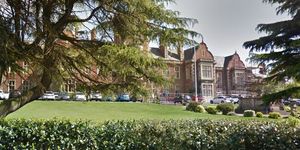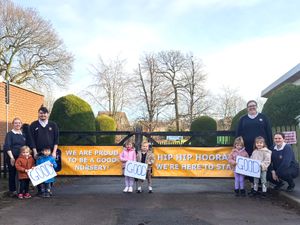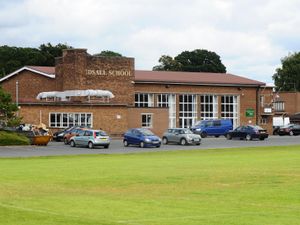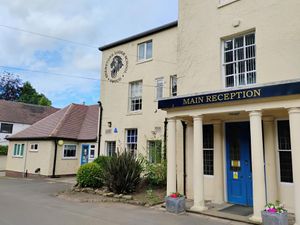The Royal Wolverhampton School praised in latest Ofsted inspection
A historic school in Wolverhampton has been given a glowing review by education bosses for maintaining its high standards while undergoing a period of expansion over the last three years.

The Royal Wolverhampton School, on Penn Road, began life as The Wolverhampton Orphan Asylum before moving to the current buildings in 1854.
Since 2016 it has been operating as a Free School, meaning it is still state-funded but manages its own affairs independently.
The school provides day education and boarding for boys and girls aged four to 19 from all ethnic, social and cultural backgrounds.
Following a recent Ofsted inspection, its performance since becoming a Free School has been praised – with education chiefs declaring it ‘good’ across the board.
In the report, Lead Inspector Alun Williams said: “Both senior leaders and governors at the school are ambitious, and they have ensured that high standards have been maintained throughout a period of rapid expansion since 2016.
“The curriculum is supplemented by an exceptionally broad range of additional activities and opportunities. And together, these contribute very strongly to pupils’ personal development. It was also noted that pupils of all ages enthusiastically embrace all the school has to offer them.
“And staff provide high-quality support for vulnerable pupils, including children looked after and those with special educational needs and/or disabilities (SEND). These pupils have been making good academic progress and are well prepared for their next stage of learning.
“Also, pupils throughout the school behave well. They are courteous, polite and well-mannered, applying themselves well in lessons and displaying strong attitudes to learning. Attendance is consistently higher than the national average in both the primary and secondary schools,” he added.
“Teaching is effective throughout the school and have high expectations of pupils. Relationships are strong, and teachers use their good subject knowledge well to explain new ideas and concepts.”
Mr Williams said a minority of teaching at the school remained a little weaker. He highlighted teachers not always using information about pupils’ abilities – including what students already know – as well as they could in planning lessons.
“Pupils demonstrated that they make good progress in all key stages, and recent weaknesses in key stage 2 and the sixth form have been eliminated.
“The early years provides children with a good start to school. Strong leadership and effective teaching means that children make good progress in all areas of learning, particularly in early reading and writing. They are then well prepared to move to Year 1.
“The sixth form prepares students well for life after school, and well-planned study programmes ensure that they develop excellent social and employability skills. Sixth formers also provide excellent role models for younger pupils.
“Members of the governing board possess considerable expertise. They are knowledgeable and fully committed to the school’s ethos and this is noted,” he added.
This is the first time the school has been inspected since opening as a Free School.




